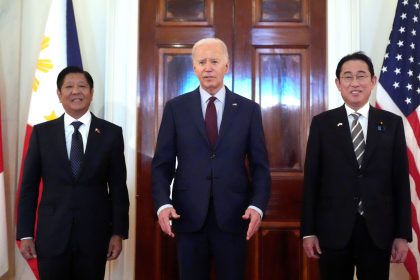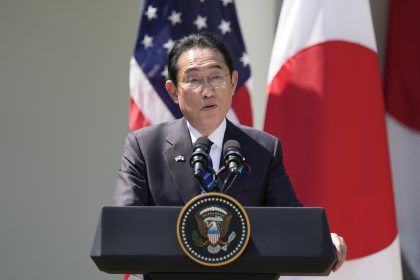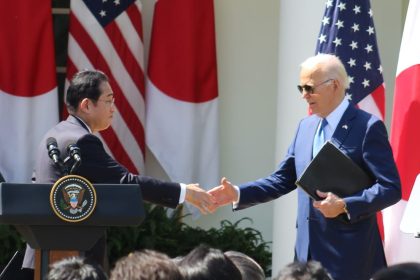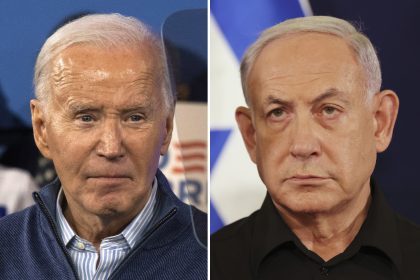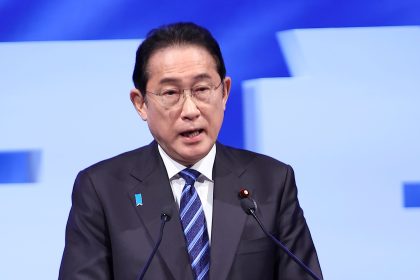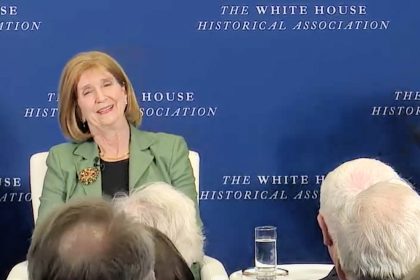Biden Presses Netanyahu to Slow Advance Toward Planned Rafah Operation
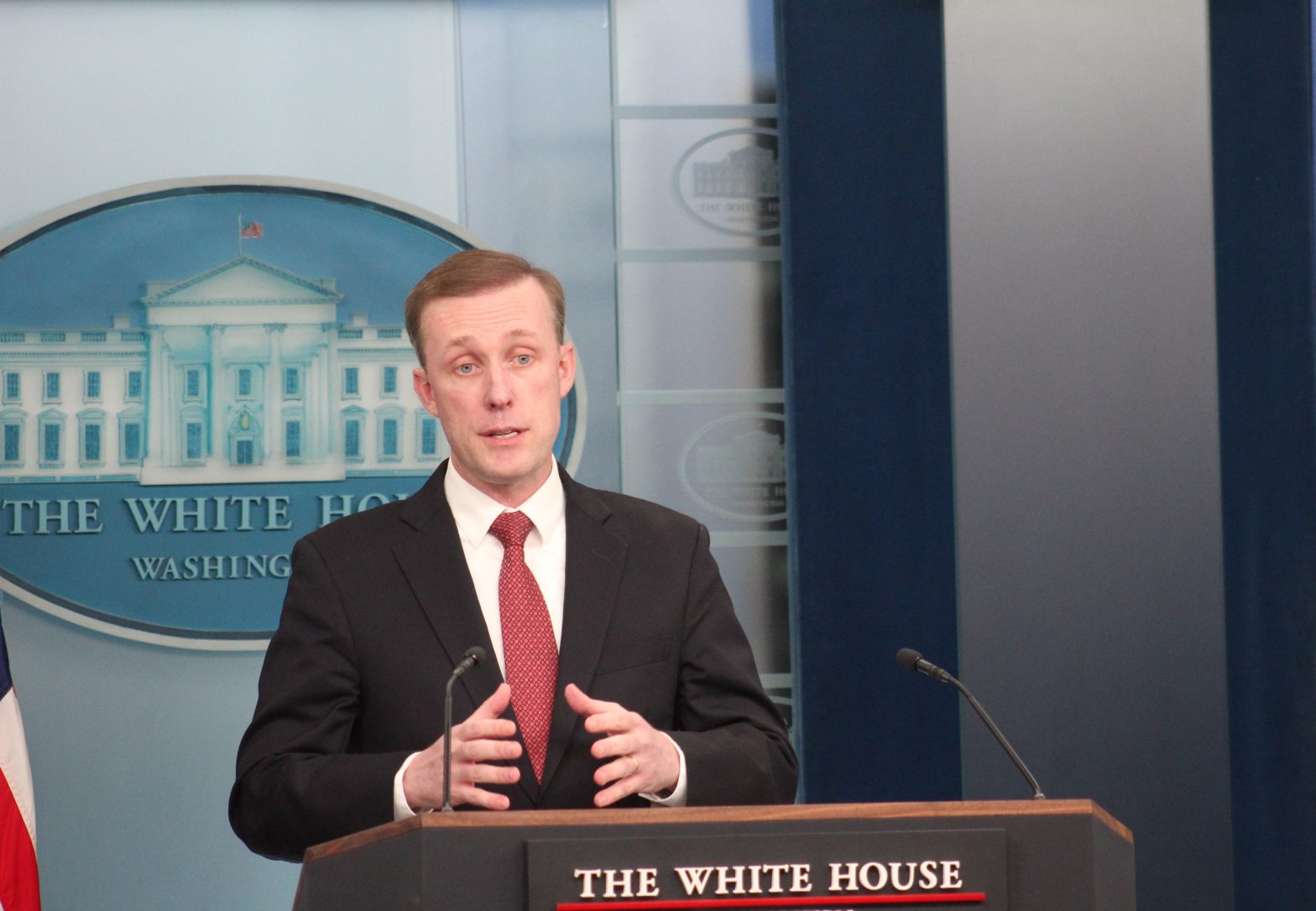
WASHINGTON — President Joe Biden warned Israeli Prime Minister Benjamin Netanyahu that a planned ground operation into Rafah — effectively Gaza’s last remaining city — would be a mistake and urged him to send a senior delegation of military leaders to Washington to discuss alternative approaches for destroying Hamas.
“During the call, the president emphasized his bone-deep commitment to ensuring the long-term security of Israel, and he affirmed his belief, as he did in the State of the Union, that Israel has a right to go after Hamas, the perpetrators of the worst massacre in Israeli history,” said National Security Adviser Jake Sullivan during a briefing with reporters in the White House press room on Monday.
“At the same time, more innocent civilians have died during this military operation than in all the past wars in Gaza combined,” he said. “A humanitarian crisis has descended across Gaza and anarchy reigns in areas the Israeli military has cleared but not stabilized.”
Sullivan said that during the call, the president reiterated the position of the United States that continuing military operations in Gaza need to be connected to a clear strategic plan.
“The president again told the prime minister that we share Israel’s goal of defeating Hamas … we just believe there needs to be a coherent and sustainable strategy … and a pause to reevaluate where things stand in the campaign and what adjustments are needed to ensure Hamas does not regenerate in areas the Israelis have already cleared.”
Sullivan told the assembled reporters that much of the discussion between the two leaders revolved around Netanyahu’s announcement earlier this week that Israeli forces will move into the southern Gaza city of Rafah to eliminate Hamas’ last remaining battalions of fighters.
“We will operate in Rafah. This will take several weeks, and it will happen,” he said at a weekly cabinet meeting on March 17.
But the president, as well as other key Western allies of Israel, have expressed profound concern that an Israeli operation in Rafah would worsen the already dire humanitarian situation in the Gaza Strip.
On Monday, Sullivan said, the president enumerated those concerns.
“First, more than 1.5 million people have taken refuge in Rafah. They went from Gaza City in the north to Rafah in the south, and now they have nowhere else to go because Gaza’s other major cities have been largely destroyed,” he said.
“And Israel has not presented us — nor the world — with a plan for how and where they would safely move [these refugees]. Let alone feed and house them and ensure their access to basic things like sanitation,” he said.
Sullivan also noted that Rafah is currently a primary entry point for humanitarian assistance in the Gaza Strip.
“An invasion [of Rafah] would shut that down, or at least put it at great risk,” he said.
Sullivan said a third factor is the fact that Rafah is located very near to the Egyptian border, and Egypt is already expressing “deep alarm” about a major military operation taking place there.
In light of these concerns, Netanyahu agreed to send a team of Israeli officials to Washington, likely by the end of the week to discuss the planned Rafah operation with Biden administration officials.
Sullivan said during that meeting the administration will lay out “an alternative approach that would target key Hamas elements in Rafah and secure the Egypt-Gaza border without a major ground invasion.”
“The president has rejected, and did again today, the straw man that raising questions about Rafah is the same as raising questions about defeating Hamas,” he continued. “That’s just nonsense. Our position is that Hamas should not be allowed a safe haven in Rafah or anywhere else, but a major ground operation there would be a mistake. It would lead to more innocent civilian deaths, worsen the already dire humanitarian crisis, deepen the anarchy in Gaza and further isolate Israel internationally.”
Sullivan described the impending meeting in Washington as the “natural evolution of a discussion between partners.”
“We’ve had many discussions between our military intelligence, our diplomatic and our humanitarian experts, but we have not yet had the opportunity to have an all encompassing, comprehensive, integrated discussion about how to ultimately defeat Hamas and to do so while protecting civilians and stabilizing Gaza in a way that will lead to the long-term security of Israel.
“From the president’s perspective, we’ve arrived at a point where we really need to get down to brass tacks,” he said.
Before taking questions, Sullivan also touched on the ongoing negotiations for an immediate ceasefire tied to release of the remaining hostages held by Hamas.
“We would look to use the space created by a cessation of hostilities to surge humanitarian assistance,” he said. “So far, however, a deal has been elusive.
“The last time I stood at this podium, I pointed out there could be a six-week ceasefire tomorrow, if Hamas handed over the elderly, the women and the wounded it is holding,” Sullivan said.
“Hamas has placed a proposal on the table to which they’ve added a series of other conditions, which the Israeli government said it can’t accept. But that’s what a negotiation is all about,” he said.
The call came less than a week after Senate Majority Leader Chuck Schumer, R-N.Y., sharply criticized Netanyahu’s handling of the war in Gaza and called for Israel to hold new elections. Schumer’s lengthy speech on the Senate floor sparked outrage among Republicans on Capitol Hill and Israeli officials, who accused the New York Democrat of interfering in a close ally’s electoral politics.
On Friday, Biden stood by Schumer, saying he had “made a good speech” and said it reflected many of the concerns shared by Americans.
Though Netanyahu could not have been pleased with those remarks, Sullivan shot down rumors that had been circulating in the press room that the call had been tense and ended abruptly.
“I can confirm that the call did not end abruptly and that it ended in a totally normal way after each leader had gotten his point across,” he said. “I would say the call was very business-like.
“Look, they both recognize that we are at a critical moment in this conflict, and that they share a common objective. At the same time, they have a different perspective on this [impending] operation.
“I would say they went into some detail on that and had the opportunity to elaborate on their respective views in a full-throated way … and that this call was very much like previous calls between the two of them,” he said.
Sullivan also shot down the suggestion that the 32 days between direct contact of the two men somehow suggested the two nations had been out of touch as the conflict in Gaza has worn on.
“Our teams are in contact every single day, on every level,” Sullivan said. “And President Biden gets daily, twice-daily and sometimes nine-times daily updates on what’s going on. He reserves his calls with the prime minister for those times when he believes we’ve arrived at a key strategic moment and a direct conversation is necessary.
“And of course, the prime minister knows how to reach the president if he has something to discuss with him, and President Biden has never declined to take a call from the prime minister. So this was pretty much the normal give and take between two leaders who are both operating their governments,” he said.
Sullivan also quashed a suggestion that the president had recently begun to “shout and swear” when he heard the conflict in Gaza was depressing his poll numbers.
“My response is that that particular report is not correct,” Sullivan said.
“As I’ve said before, from the president’s perspective, this isn’t about politics or public opinion or public statements. This is about policy and strategy and how do we get to the right result? The president is not focused on what’s popular and how we shape public opinion.
“So what is the right result? The right result is the enduring defeat of Hamas. It’s a two-state solution that vindicates the aspirations of the Palestinian people and, in a broader sense, leads to a normalization of reaction so that Israel is at peace with all of its Arab neighbors,” Sullivan continued. “The president believes we need to drive to that outcome.
“And while it is true that many voices in Israel can’t see that today, that is not going to alter the president’s view; from his perspective, this outcome is not just in the U.S. national security interest. … It’s really the only solution to Israel’s future as a democratic Jewish state that is secure and at peace with its neighbors, including its most immediate neighbors, the Palestinian people,” Sullivan said.
Dan can be reached at [email protected] and at https://twitter.com/DanMcCue


















